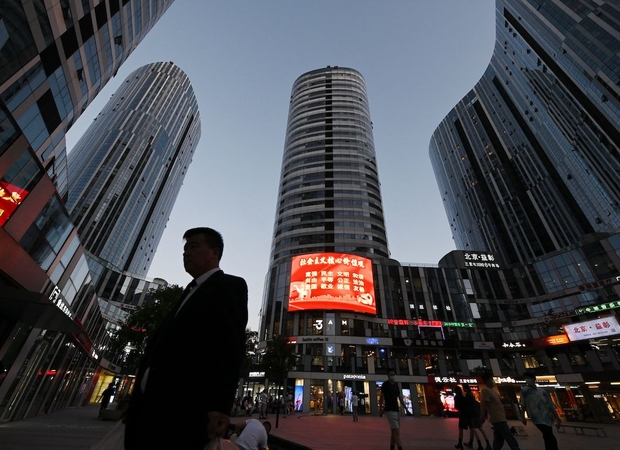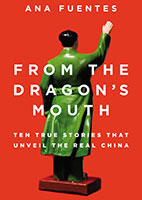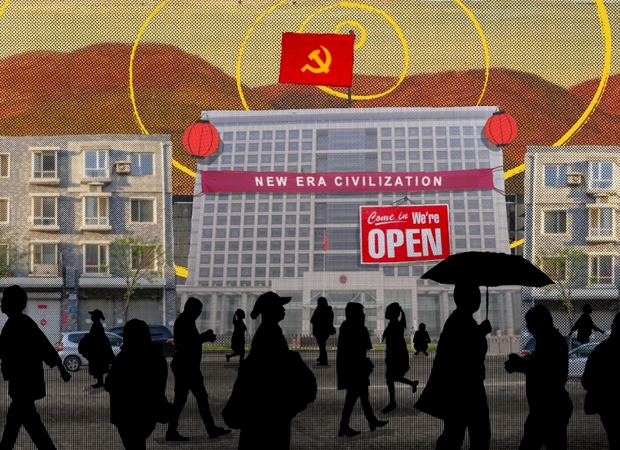

China’s Notorious City Management Officers in Legal Limbo Despite Expanding Role
The Ministry of Housing and Urban-Rural Development has been charged with regulating the force that earlier was under the sole purview of local governments
China’s New Tool for Social Control: A Credit Rating for Everything
Beijing wants to give every citizen a score based on behavior such as spending habits and filial piety, which can bar citizens from loans, jobs, air travel

Tombstone
An estimated 36 million Chinese men, women, and children starved to death during China’s Great Leap Forward in the late 1950s and early ’60s. One of the greatest tragedies of the twentieth century, the famine is poorly understood, and in China is still euphemistically referred to as the “three years of natural disaster.”
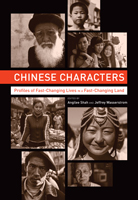
Chinese Characters
Though China is currently in the global spotlight, few outside its borders have a feel for the tremendous diversity of the lives being led inside the country. This collection of compelling stories challenges oversimplified views of China by shifting the focus away from the question of China’s place in the global order and zeroing in on what is happening on the ground. Some of the most talented and respected journalists and scholars writing about China today profile people who defy the stereotypes that are broadcast in print, over the airwaves, and online.
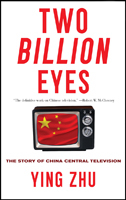
Two Billion Eyes
With over 1.2 billion viewers globally, including millions in the United States, China Central Television (CCTV) reaches the world’s single largest audience. The official mouthpiece of the Chinese Communist Party, CCTV is also a dynamic modern media conglomerate, fully reliant on advertising revenue and aggressively competitive both within China and on the global media scene. Yet this hugely influential media player is all but unknown to the west. Two Billion Eyes tells its story for the first time.

The Tree That Bleeds
In 1997 a small town in a remote part of China was shaken by violent protests that led to the imposition of martial law. Some said it was a peaceful demonstration that was brutally suppressed by the government; others that it was an act of terrorism. When Nick Holdstock arrived in 2001, the town was still bitterly divided. The main resentment was between the Uighurs (an ethnic minority in the region) and the Han (the ethnic majority in China).
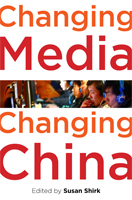
Changing Media, Changing China
Thirty years ago, the Chinese Communist Party (CCP) made a fateful decision: to allow newspapers, magazines, television, and radio stations to compete in the marketplace instead of being financed exclusively by the government. The political and social implications of that decision are still unfolding as the Chinese government, media, and public adapt to the new information environment.
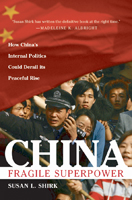
China: Fragile Superpower
Once a sleeping giant, China today is the world's fastest growing economy—the leading manufacturer of cell phones, laptop computers, and digital cameras—a dramatic turn-around that alarms many Westerners. But in China: Fragile Superpower, Susan L. Shirk opens up the black box of Chinese politics and finds that the real danger lies elsewhere—not in China's astonishing growth, but in the deep insecurity of its leaders. China's leaders face a troubling paradox: the more developed and prosperous the country becomes, the more insecure and threatened they feel.

Protest with Chinese Characteristics
The origin of political modernity has long been tied to the Western history of protest and revolution, the currents of which many believe sparked popular dissent worldwide. Reviewing nearly one thousand instances of protest in China from the eighteenth to the early-nineteenth centuries, Ho-fung Hung charts an evolution of Chinese dissent that stands apart from Western trends.
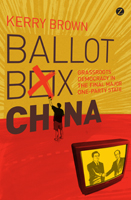
Ballot Box China
Since 1988, China has undergone one of the largest, but least understood experiments in grassroots democracy. Across 600,000 villages in China, with almost a million elections, some three million officials have been elected. The Chinese government believes that this is a step towards "democracy with Chinese characteristics". But to many involved in them, the elections have been mired by corruption, vote-rigging and cronyism.
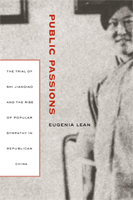
Public Passions
In 1935, a Chinese woman by the name of Shi Jianqiao murdered the notorious warlord Sun Chuanfang as he prayed in a Buddhist temple. This riveting work of history examines this well-publicized crime and the highly sensationalized trial of the killer. In a fascinating investigation of the media, political, and judicial records surrounding this cause célèbre, Eugenia Lean shows how Shi Jianqiao planned not only to avenge the death of her father, but also to attract media attention and galvanize public support.

Superstitious Regimes
We live in a world shaped by secularism—the separation of numinous power from political authority and religion from the political, social, and economic realms of public life. Not only has progress toward modernity often been equated with secularization, but when religion is admitted into modernity, it has been distinguished from superstition. That such ideas are continually contested does not undercut their extraordinary influence.
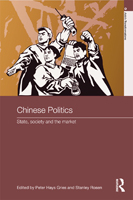
Chinese Politics
Written by a team of leading China scholars, this text interrogates the dynamics of state power and legitimation in 21st-century China. Despite the continuing economic successes and rising international prestige of China there has been increasing social protests over corruption, land seizures, environmental concerns, and homeowner movements.
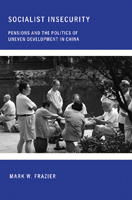
Socialist Insecurity
Over the past two decades, China has rapidly increased its spending on its public pension programs, to the point that pension funding is one of the government's largest expenditures. Despite this, only about fifty million citizens—one-third of the country's population above the age of sixty—receive pensions. Combined with the growing and increasingly violent unrest over inequalities brought about by China's reform model, the escalating costs of an aging society have brought the Chinese political leadership to a critical juncture in its economic and social policies.
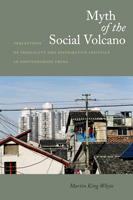
Myth of the Social Volcano
Is popular anger about rising inequality propelling China toward a "social volcano" of protest activity and instability that could challenge Chinese Communist Party rule? Many inside and outside of China have speculated, without evidence, that the answer is yes. In 2004, Harvard sociologist Martin King Whyte has undertaken the first systematic, nationwide survey of ordinary Chinese citizens to ask them directly how they feel about inequalities that have resulted since China's market opening in 1978. His findings are the subject of this book. —Stanford University Press
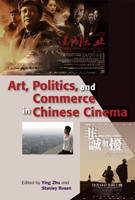
Art, Politics and Commerce in Chinese Cinema
Art, politics, and commerce are intertwined everywhere, but in China the interplay is explicit, intimate, and elemental, and nowhere more so than in the film industry. Understanding this interplay in the era of market reform and globalization is essential to understanding mainland Chinese cinema. This interdisciplinary book provides a comprehensive reappraisal of Chinese cinema, surveying the evolution of film production and consumption in mainland China as a product of shifting relations between art, politics, and commerce.




